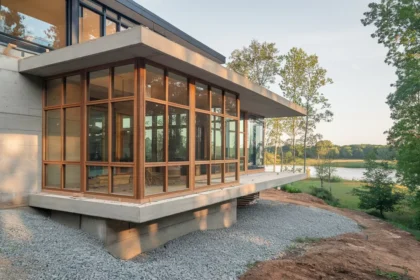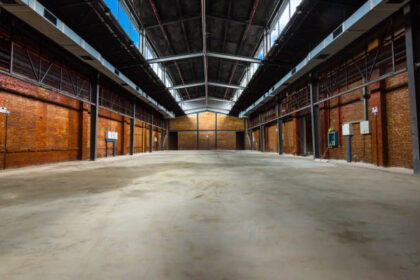Land development is rarely straightforward, especially when navigating the maze of planning rules, zoning overlays, and environmental regulations. In regions like Northland, where the landscape is as diverse as the planning framework, even experienced developers can find themselves challenged by council requirements and shifting policies.
That’s where expert planning consultants in Northland come in. Rather than viewing regulations as barriers, they help turn complexity into opportunity, guiding developers through every stage of the planning and consent process with confidence and clarity.
1. Why Planning Challenges Are So Common
Every property has unique planning considerations. Zoning, land use restrictions, infrastructure capacity, and environmental overlays all affect what can — and cannot — be developed.
In Northland, this complexity increases because of:
-
Diverse land types — from coastal areas to rolling farmland and urban zones
-
Ecological sensitivity — wetlands, native bush, and wildlife habitats requiring protection
-
Council variations — with different district plans across Whangārei, Kaipara, and Far North
-
Frequent policy updates — evolving under national direction and resource management reforms
Without professional advice, it’s easy for developers to misinterpret a rule, submit incomplete applications, or design plans that don’t align with local objectives.
That’s where early planning input changes everything.
2. How Planning Consultants Simplify a Complex Process
Professional planning consultants act as interpreters — translating dense planning documents and regulatory language into actionable, developer-friendly strategies.
A qualified planning consultant in Northland will:
-
Review zoning and district plan requirements for your site
-
Identify potential constraints and opportunities
-
Recommend design approaches that comply with local rules
-
Coordinate supporting specialists — surveyors, engineers, and ecologists
-
Prepare and manage your resource consent application
Their goal is to make the entire process smoother, faster, and less risky — saving time and money while maximising development potential.
3. Turning Constraints Into Opportunities
One of the biggest advantages of working with experienced consultants is their ability to find solutions within the rules.
A site that appears restricted might actually have potential when approached creatively. For example:
-
A coastal setback requirement could be turned into a landscape feature that enhances property value.
-
Native vegetation protection zones might support eco-living subdivisions appealing to niche buyers.
-
Infrastructure limitations could justify staging development to match future upgrades.
By seeing beyond the obstacles, skilled planners turn regulatory challenges into unique selling points — adding both financial and environmental value.
4. Collaboration Is Key to Successful Outcomes
Planning challenges rarely exist in isolation. They often connect to engineering, environmental, or legal factors — meaning collaboration is crucial.
Modern planning consultants in Northland work closely with surveyors, engineers, and ecologists to align all aspects of a development proposal before submitting it for consent. This team-based approach ensures the project meets council expectations, avoids unnecessary information requests, and moves through the approval process efficiently.
When each consultant understands the full picture, developers benefit from cohesive, well-prepared applications that councils are more likely to support.
5. The Value of Early Planning Advice
One of the most common mistakes developers make is bringing a planner in after designs are completed.
By involving a consultant early — even before land purchase — you can:
-
Confirm whether your vision aligns with planning rules
-
Identify potential red flags before spending on design work
-
Assess feasibility and likely consent pathways
-
Gain insight into council priorities and policy directions
This proactive approach gives developers a strategic edge, turning uncertainty into informed decision-making.
6. Local Knowledge Makes a Difference
Northland’s development environment is unique — its landscapes, communities, and planning frameworks require local insight to navigate effectively.
Local planning consultants in Northland understand the nuances of each district plan, maintain relationships with council staff, and know what documentation and design details will strengthen an application.
That experience translates directly into faster approvals, fewer surprises, and more successful outcomes.
Conclusion
Planning complexity doesn’t have to be a roadblock — it can be a roadmap to better development outcomes.
With the right consultant, regulatory requirements become opportunities to design smarter, build responsibly, and add long-term value. Whether you’re subdividing coastal land, developing a rural property, or working on an urban infill project, expert guidance helps turn potential challenges into well-managed, profitable results.
Partnering with skilled planning consultants in Northland ensures your project moves forward with confidence — from concept to consent and beyond.
Top 10 FAQs About Planning Consultants and Land Development in Northland
1. What does a planning consultant do in Northland?
A planning consultant helps landowners and developers understand and comply with Northland’s zoning, consent, and environmental regulations. They prepare planning reports, coordinate with councils, and manage resource consent applications from concept to approval.
2. Why should I hire a planning consultant before starting a development project?
Engaging a planner early helps identify zoning restrictions, environmental overlays, and infrastructure limitations before you invest heavily in design. Early advice reduces risk, saves time, and improves the chances of council approval.
3. How do planning consultants in Northland help with resource consent applications?
They analyse your site, prepare professional planning assessments, liaise with council officers, and ensure all supporting documentation—like surveys, engineering reports, and ecology assessments—is correctly included for faster consent processing.
4. What are the most common planning challenges in Northland?
Developers often face issues like flood-prone land, coastal setbacks, native vegetation protection, and infrastructure capacity limits. Local planning consultants help navigate these challenges by finding compliant and practical solutions.
5. How can a planning consultant turn regulatory restrictions into opportunities?
Experienced consultants can use planning rules to your advantage—by integrating landscape buffers, creating eco-friendly subdivisions, or designing in line with council sustainability goals to enhance property value and community appeal.
6. How long does the planning and consent process take in Northland?
The timeframe varies by project complexity and council workload. Straightforward consents may take 20–30 working days, while larger or notified applications can extend several months. A planner helps streamline this process through complete, well-prepared submissions.
7. Do I need a planner if I already have a surveyor or architect?
Yes. While surveyors and architects design the physical layout, a planning consultant ensures your design meets zoning and consent rules. Collaboration between all three professionals leads to a stronger, more efficient application.
8. What information should I provide to my planning consultant?
You’ll need to share your project vision, site details (such as title, location, and constraints), previous reports, and any initial design concepts. The more accurate the information, the better your consultant can guide you strategically.
9. How do I choose the right planning consultant in Northland?
Look for consultants with proven experience in local council processes, a strong understanding of the Resource Management Act, and positive feedback from developers. Local expertise is key to faster approvals and better outcomes.
10. Can planning consultants help with appeals or rejected consents?
Yes. If a consent is declined, planning consultants can review the council’s decision, prepare additional documentation, negotiate changes, or represent your interests in hearings to help secure approval on appeal.



